The Bollywood dream is no longer an option for Pakistan’s stars
Whoever said art has no borders needs to shrug right now and add the disclaimer that this phrase does not apply to the volatile land that spans the Indo-Pak Subcontinent.
This piece has been rewritten several times so far. The political landscape keeps changing, with war drums getting beaten ever more loudly on both sides of the border. News channels are thriving on jingoism, and social media has become a battleground all on its own, with cross-border blame games running rife.
As tensions escalate and attacks are made by both countries, this narrative has had to be updated again and again. It has evolved, from an observation on the very disparate attitudes both countries’ artists have had to recent events, to a comment piece on India banning Pakistani art and artists, to now, the repercussions of the military exchange on the night of 7th May.
These are times of war and — since this piece particularly focuses on Pakistan’s artist community — the change in the artists’ stances echoes the emotional upheaval being experienced by the country as a whole.
Following the attack in Pahalgam in India-Occupied Jammu and Kashmir on April 22, many Pakistani artists had extended their sympathies to people across the border. But even then some had an inkling of matters souring, especially with India’s knee-jerk reaction immediately pinning the blame on Pakistan even before any investigation had taken place.
For example, an incensed Urwa Hocane had said in an Instagram video, “If a crime takes place in front of you and people suddenly say that you have done it, would your first instinct be to sympathise that it is a loss for humanity or would you first retaliate that no, don’t blame me, back off?”
When the Indian government went about banning Pakistani YouTube portals and the Instagram pages of Pakistani stars, a sardonic Farhan Saeed had commented, “Your loss.”
It was obvious that India didn’t care much for Pakistan’s extensions of kindness and sympathy with reference to Pahalgam. The political mandate had been set and they had to follow it to the tee.
Designer Manish Malhotra — frequently seen hobnobbing with Pakistani stars on Dubai’s neutral ground — quietly removed videos featuring Hania Aamir and Mahira Khan wearing his designs from his Instagram. Indian musician Diljit Dosanjh Singh, who had recently invited Hania Aamir on stage during a concert, stayed silent while rumours floated about that the release of his movie co-starring Hania, Sardar Ji 3, was in trouble.
With tensions on the rise, actress turned Instagram commentator Mishi Khan had curtly told Pakistani celebrities that they should be “ashamed” sympathising with the attack victims but never specifying that Pakistan should not be blamed for the incident. Host and actress Nadia Khan had similarly been very vocal.
On the other side of the border, lyricist and screenwriter Javed Akhtar had added fuel to the fire, spewing out senseless, historically incorrect information with a straight face and an intellectual air. Pakistan has never welcomed Indian celebrities, he had stated, refraining from Googling all the many times Bollywood stars had visited Pakistan.
He had confidently turned a blind eye to the protests that have ensued in his country over Pakistani artists working in India and all the times Bollywood movies featuring Pakistanis have had to go through massive edits in order to allay political tensions. Instead, he had lauded India’s supposed generosity for “welcoming” Pakistani artists.
Bushra Ansari had responded with incredulity: “What can we say about this man? He can’t get a flat for rent in Mumbai, which is why he has to say all this,” she had quipped, referencing the well-publicised lament from Akhtar’s actress wife Shabana Azmi a few years ago about the discrimination faced by them as Muslims. Others in Pakistan had responded with far more colourful words.
Countering the seriousness of the situation was a deluge of memes on X (formerly Twitter), making fun of the impending war. Some were actually very funny, reflecting that perhaps many in Pakistan didn’t believe that war would actually take place. Or perhaps they were born out of gallow’s humour. Both Pakistan and India are nuclear powers and a nuclear war could mean the end of both nations. When the going got tough, the tough got meme-ing.
And while the jibes and wisecracks continued, a military cross-border attack suddenly shook the nation on May 7. The jokes ended.
Actor Fawad Khan, in an Instastory, extended “condolences to the families of those injured and killed in this shameful attack… A respectful request to all: stop stoking the flames with rabble-rousing words. It is not worth the lives of innocent people.”
Sadly, Fawad’s movie, Abir Gulaal, touted as his Bollywood comeback, has become collateral damage in the ongoing clash. Shortly after the actor had been seen in Dubai, happily promoting the movie to an enthusiastic crowd, Pahalgam had happened and the scenario had changed.
The movie has been postponed indefinitely and Fawad, active on Instagram after a long time sharing glimpses of the promotions, seemed to have logged off social media after offering his sympathies over the Pahalgam attack. He logged back on, it seems, only to condemn the attack on May 7.
Mahira Khan, in a heartfelt note, wrote on her Instagram, “India, your war and hate rhetoric has continued for many years. Have seen and experienced it with my own eyes. Your media fans the flames of division. Your most powerful voices remain silent in the face of genocide and war crimes — silenced not by law, but by fear! And in that fear, you claim victory… You attack cities in the middle of the night and call it a victory? Shame on you.”
Mahira’s stance is particularly notable. She is one of Pakistan’s biggest stars, has represented the country at Cannes and has worked with Shah Rukh Khan in a major Bollywood movie. And yet, at a time of impending war, she chose to voice her opinions rather than remain purposefully quiet.
The rhetoric similarly changed for many other stars, who eschewed carefully worded statements and opted for a patriotic ‘Pakistan Zindabad’.
Hania Aamir — with a massive fan following in India and the previously mentioned Indian Punjabi movie opposite Diljit Dosanjh Singh in the works — stepped away from neutral, kind statements to write: “You don’t get to bomb innocent people and call it strategy. This isn’t strength. This is shameful. This is cowardly. And we see you.”
Artists on the other side of the border brandished their own brand of patriotism, exclaiming ‘Jai Hind’ following the military strike, officially dubbed Operation Sindoor.
At this point, the artistic divide between Pakistan and India has never been more visible. And there is a lesson to be learnt here.
One doesn’t know whether matters will worsen or calm down. At the time when this piece is being written — the morning of May 7 — Pakistani airspace has been re-opened while news channels on both sides of the border continue to brag about teaching the enemy a lesson.
Even if matters do calm down, though, it is obvious that the myth of India-Pakistan dosti (friendship) — and moreover, Pakistanis working in Bollywood — should be tossed aside conclusively.
Even during times when political tensions have been somewhat calmer, Bollywood has frequently served as a vehicle for anti-Pakistan propaganda while our dramas and films have predominantly refrained from doing so.
A hollering Sunil Shetty has played the valiant soldier standing strong against ‘evil Pakistanis’, a red-eyed Sunny Deol has frequently thrown bombs our way, Akshay Kumar has caught out malevolent spies from Pakistan and Siddharth Malhotra has indulged in air-borne fights with ‘wicked, heartless Pakistani pilots.’
In their movies, their heroes have ventured into a fictional, Indian-ised version of Pakistan; a backward epicenter of terrorist activity where the men all wear surma (kohl) and parrot-green shalwar qameez, and speak in weird versions of Urdu. The hate has always been there but we can’t ignore it anymore; it’s staring us in the face, shaking us by the shoulders, knocking sense into us.
Sure, we may enjoy Bollywood movies and songs and we may have grown up watching their stars, but the fandom needs to stop there. Our stars certainly need to stop wanting to work in India and set themselves up for humiliation.
There was a time when Pakistani celebrities would sarcastically observe that they would only get valued in their own country once they had made a name for themselves in India. However, times have changed. Pakistan’s drama industry has grown into a prodigious force, with a fan following from around the world.
Our film industry may still be struggling to survive, but TV is thriving, with many actors achieving superstardom on the strength of their work in dramas. A hit run on TV can work wonders for an actor’s career and bank balance, hauling in ad campaigns and multiplying their Instagram following into millions — many of these followers being from India, in the pre-ban days.
It may not be a platform as all-pervasive and extensive as Indian cinema, but Pakistani dramas are slowly getting there. At the same time, the Bollywood that once enamoured a captive audience no longer exists, with films flopping constantly and nepotism ruining many a promising storyline. Even if the great Bollywood dream was a possibility for Pakistanis, it’s just not worth it anymore. Besides, with the way things are, the dream tends to quickly become a nightmare.
Beyond Bollywood’s latkas and jhatkas (song and dance), there’s a whole new world that Pakistani stars now need to focus on.
Humayun Saeed played a pivotal role in Netflix’s The Crown, Ahad Raza Mir has starred in Netflix’s Resident Evil and BBC’s World on Fire, Asif Raza Mir was a major linchpin in three seasons of Sky Atlantic and AMC+’s Gangs of London. Mehwish Hayat, Fawad Khan, Samina Ahmad and Nimra Bucha all starred in Disney+’s MsMarvel series. There’s a whole world out there and while it isn’t easy getting there, neither is starring in a Bollywood project and suddenly getting kicked out.

War is a scary, debilitating notion. Its consequences on the entertainment industry is a minor concern at this point in time. One could say that it is negligible when compared with the potential loss of thousands of human lives and mass destruction.
Let’s remember, though, once things get better — and one hopes that they do soon — that the Bollywood dream is no longer an option. It never was.
Originally published in Dawn, ICON, May 11th, 2025






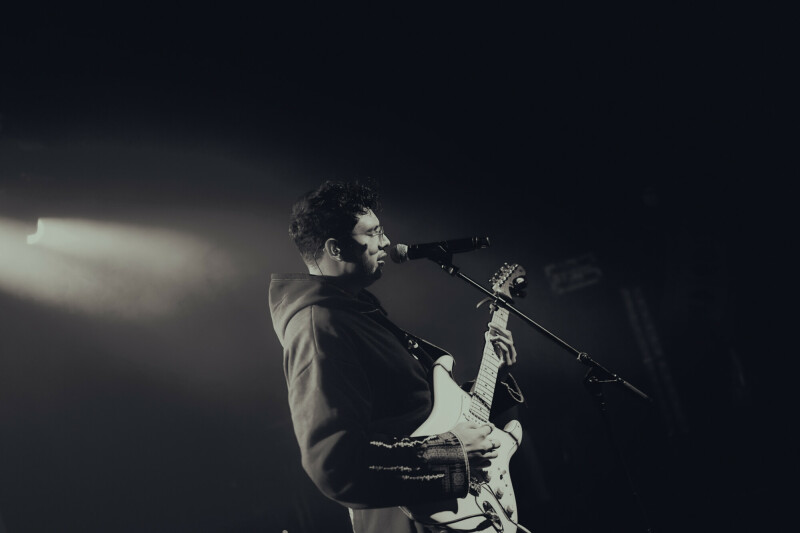
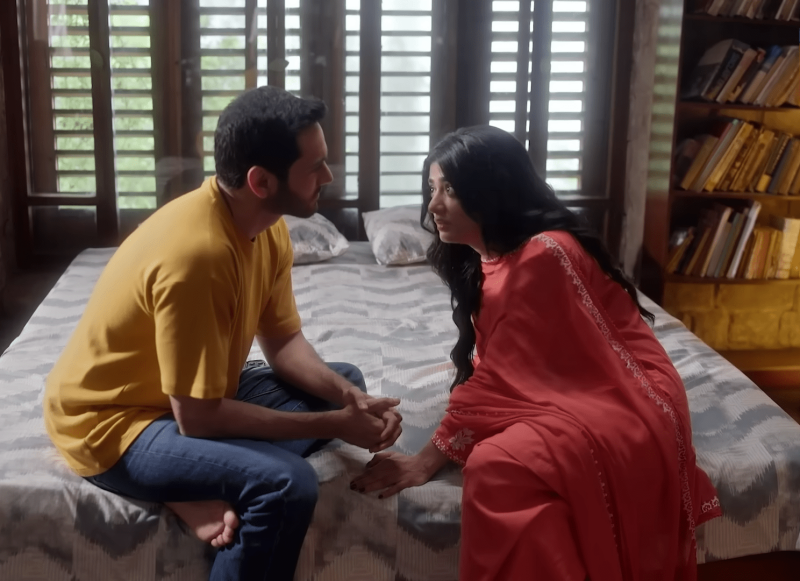
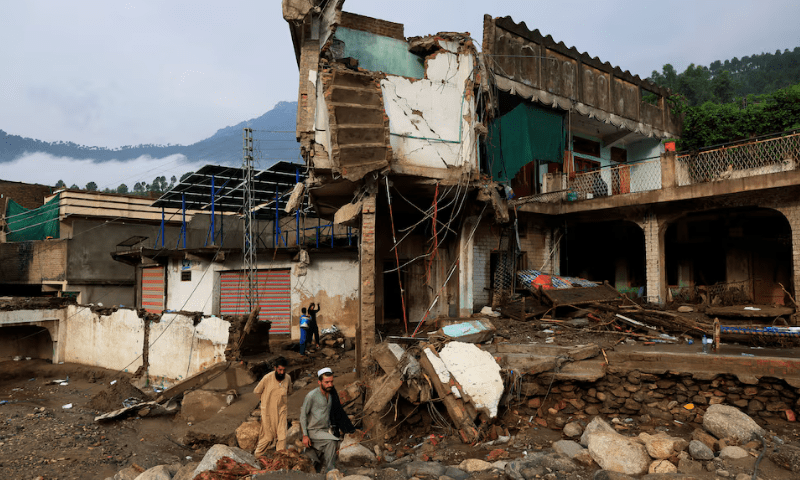

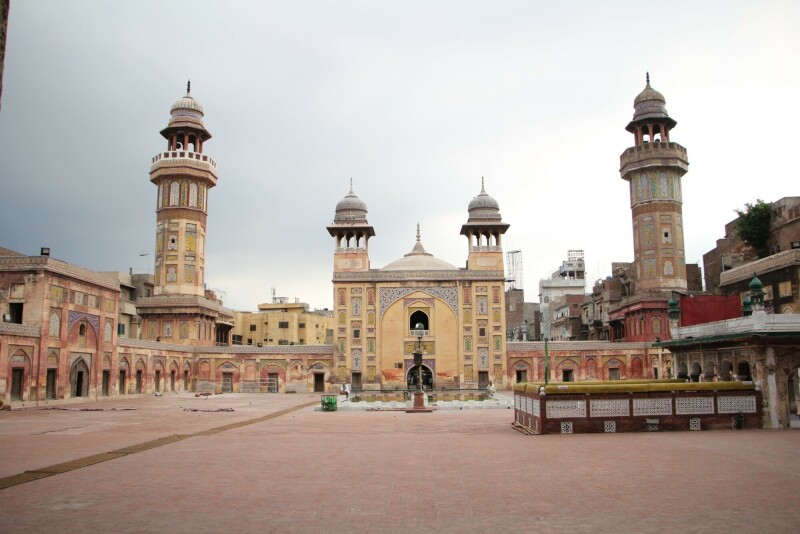
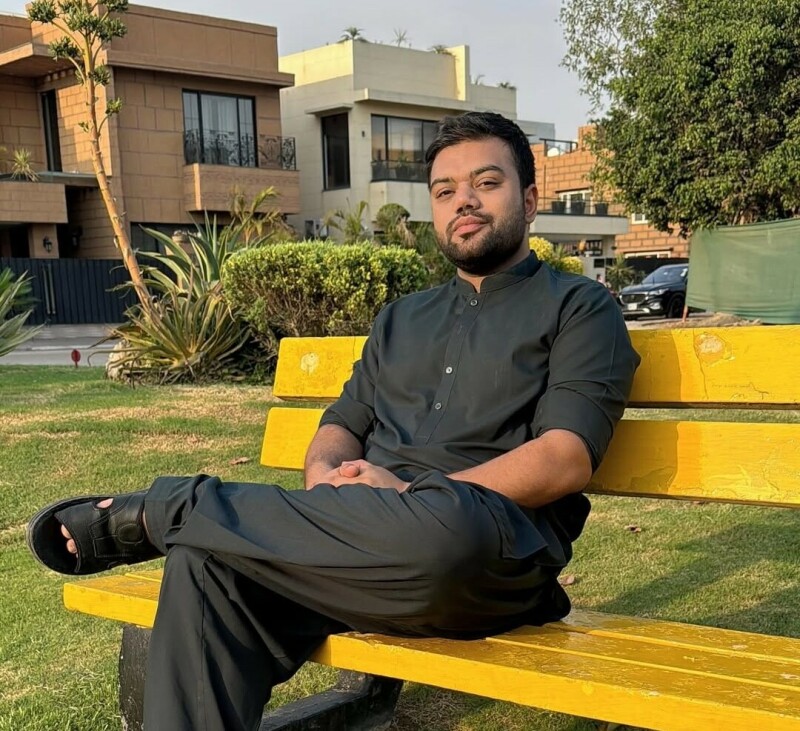

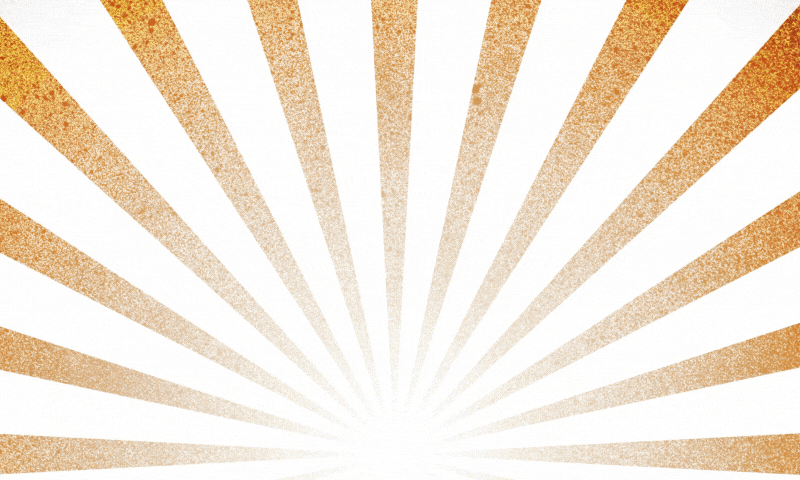
Comments